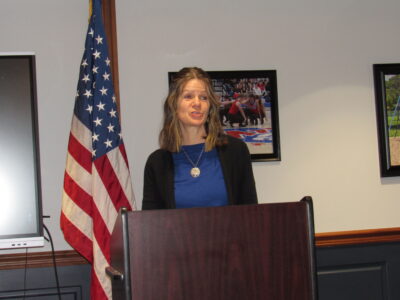Site Certification Rules Released for West Virginia’s New Data Center/Microgrid Law
CHARLESTON — The public comment period is now open for West Virginians to weigh in on proposed rules governing the certification of sites for the state’s new law aimed at luring data centers powered by their own microgrid power plants.
The Division of Economic Development within the state Department of Commerce filed its legislative rule and emergency rule for data center/microgrid district certification on Nov. 10, kicking off a 30-day written public comment period ending Wednesday, Dec. 10.
The rules are required by House Bill 2014, the Power Generation and Consumption Act, which went into effect on July 11. The bill – one of Gov. Patrick Morrisey’s priorities during the 2025 regular legislative session, was signed by the governor at the end of April.
HB 2014 is aimed at attracting high-impact industrial businesses and data centers to West Virginia along with microgrids to power the data centers using both fossil fuels and renewable energy generation. The new law streamlines development of data center and microgrid projects, offers regulatory exemptions within designated microgrid districts, establishes a special valuation for property taxes and a new tax distribution framework for high-impact data centers and creates a fund for electric grid stabilization.
HB 2014 makes changes to a law passed in 2022, Senate Bill 4001, that created the Certified Industrial Business Expansion Development Program that allowed for only two certified microgrid districts. The new law expands the number of microgrid districts, allows for microgrids for data centers if more than 70% of the electricity generated is consumed by or will be consumed by one or more data centers.
Microgrids within these new districts would be exempt from jurisdiction of the state Public Service Commission regarding rates, certificates of convenience, service conditions, complaints and net metering and interconnection standards. Projects in these districts would only be able to participate in the microgrid if they had not previously received electrical service from a utility and can show their new investment will not decrease load elsewhere.
The new law protects regulated utility customers from bearing any costs associated with electricity generation, transmission or distribution facilities serving a microgrid district, with those costs borne by the generator or consumers within the district.
The Power Generation and Consumption Act prohibits counties and municipalities from enacting or enforcing ordinances, regulations or rules that would prohibit or hinder these data center/microgrid districts. Certified projects will still pay business and occupation tax, municipal sales and service tax, ad valorem real and personal property tax, municipal service fees and utility rates to the municipality.
However, instead of having data center property values assessed by the county, HB 2014 requires owners to file tax returns with the Board of Public Works annually, with tangible personal property tax collections distributed via a formula.
According to a formula in the bill, 50% of property tax collections from these projects would go to a personal income tax reduction fund, 30% would go to the county or counties where the data centers are, 10% would go to all 55 counties on a per capita basis and 5% would go to the state Economic Enhancement Grant Fund.
Another 5% would go to a new Electric Grid Stabilization and Security Fund administered by the Department of Commerce.
State officials believe that the Power Generation and Consumption Act will encourage data center development in West Virginia, though the state remains well behind neighboring states. According to DataCenterMap.com, West Virginia only has seven data centers compared to Virginia, which has more than 650 data centers, with northern Virginia considered the data center capital of the world.
Proposed data center/microgrid projects in Tucker and Mingo, pre-dating the passage of HB 2014 — have received criticism in those communities. Both projects have approved air quality permits for natural gas-fired microgrid power plants. The Tucker County air quality permit approval was appealed.





